Designers and manufacturers are increasingly committed to ensuring their products are sustainably made.
Tallulah Rushaya highlights a few of our favourite brands so you can team your antiques and vintage finds with contemporary furniture and homewares with a clear conscience.
From furniture to lighting to accessories, here are a few of the UK's best sustainable homeware brands to have on your radar...
Best sustainable homeware brands
Choosing Keeping
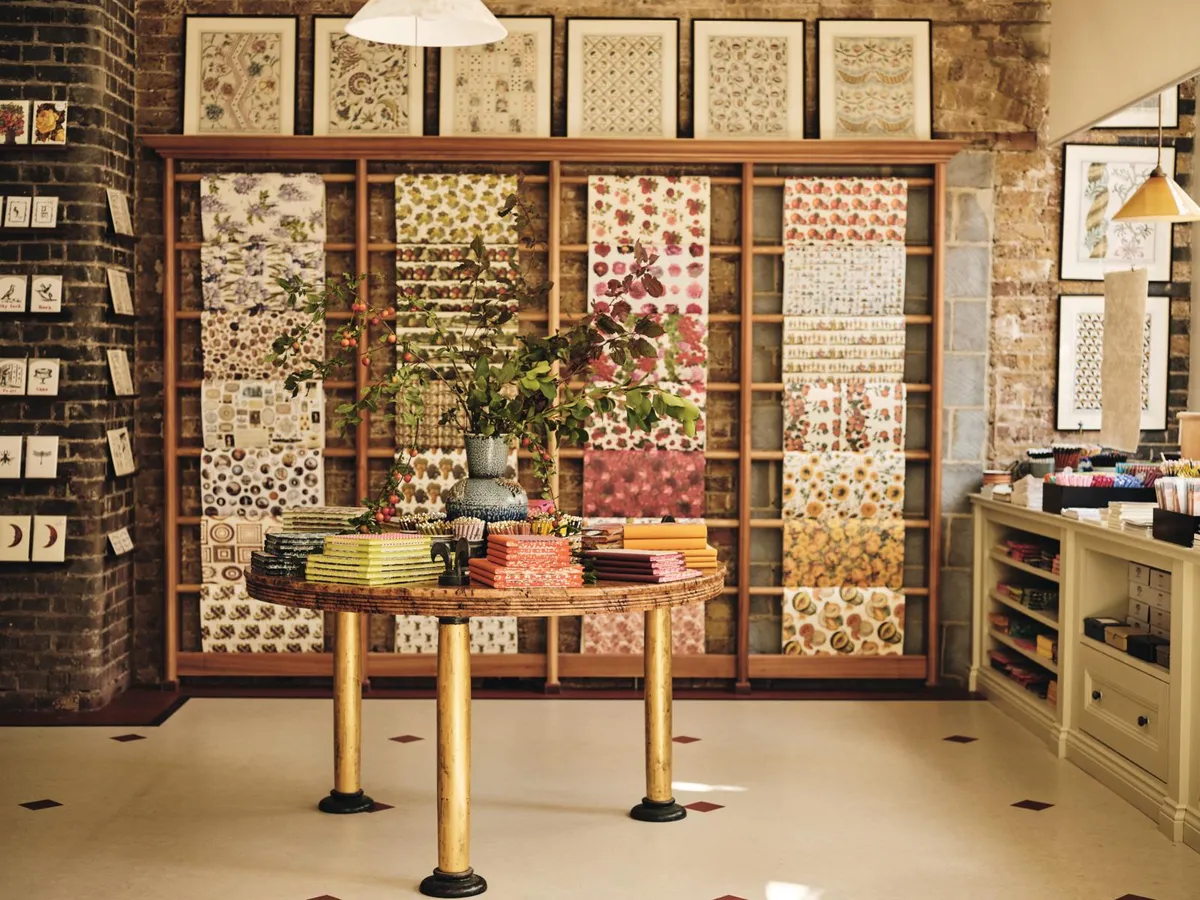
Founded as a thoughtful and stylish challenge to an increasingly digital age, this stationers sources almost all of its stock from independent small-scale suppliers: businesses, factories and workshops that are significant within their communities and often employ many local people.
Choosing Keeping excels in finding items that are natural substitutes to manufactured staples such as cellophane tape made from wood chips, making it completely biodegradable, or its Japanese rice glues, which are made completely from starch rather than polymer plastics.
Johnstons of Elgin
Founded in 1797, Johnstons of Elgin has been a leading name in the design and manufacture of luxurious cashmere and wool, and a new collaboration with Ben Pentreath was launched this autumn.
In recent years the company has been training the nomadic herders who supply their cashmere in modern sustainability theories alongside supporting traditional skills. In 2021 Johnstons of Elgin received The Queen’s Award for Enterprise for its work on sustainability.
ND On The Green

Founded by interior designer Natascha Dartnall, ND On The Green is an excellent source of gifts and homewares with a certain je ne sais quoi. The ever-changing stock always includes an interesting selection of art, antiques and homewares from small independent makers, many with an interesting backstory.
Birdie Fortescue
The eponymous brand is always looking for ways to reduce its carbon footprint on globally sourced products and, as a small business, is keen to support other small businesses in the local community – from couriers to cushion suppliers and artists.
Further afield, the company has forged relationships with talented artisans in India, whose quality craftsmanship means the homewares they produce will be enjoyed by generations to come.
You might also like how to upcycle furniture using sustainable methods and materials
Bivain
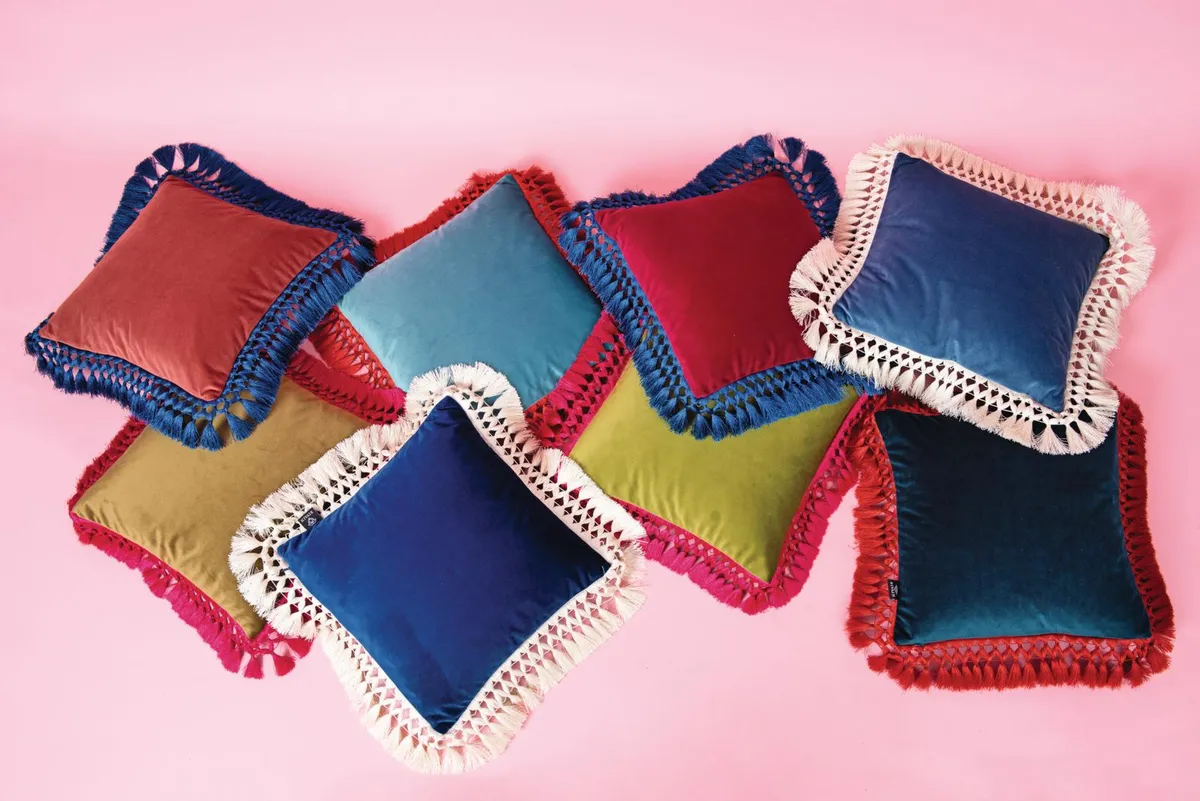
Founded in 2016 by Megha Lohia and Rachel Fong, both Central Saint Martins-trained designers, Bivain is a small independent company producing rugs, cushions, scarves and pocket squares, many with a joyfully quirky edge.
The pair source all their own materials and keep a close eye on production, ensuring waste is kept to a minimum: their Inde twill mulberry silk scarves, made from leftover fabric, are a case in point.
Nkuku
The stylish homewares brand was inspired by founders Ali and Alex Cooke’s travels in East Africa, and takes its name, Nkuku, from a hut they visited in Zambia. Today, Nkuku works with fair trade enterprises, social projects, and co-operatives around the globe. Products are made from natural materials that are sustainably farmed, such as hemp, jute, rattan, corn husk and water hyacinth.
The company also supports a number of partnerships that focus on improving living standards, such as FRANK Water and also works to improve safe water, sanitation, and hygiene (WASH) in India and Nepal. Closer to home, they are involved in Till The Coast is Clear, a community regeneration project in Devon that strives to keep coastlines free of plastic and waste.
Petersham Nurseries
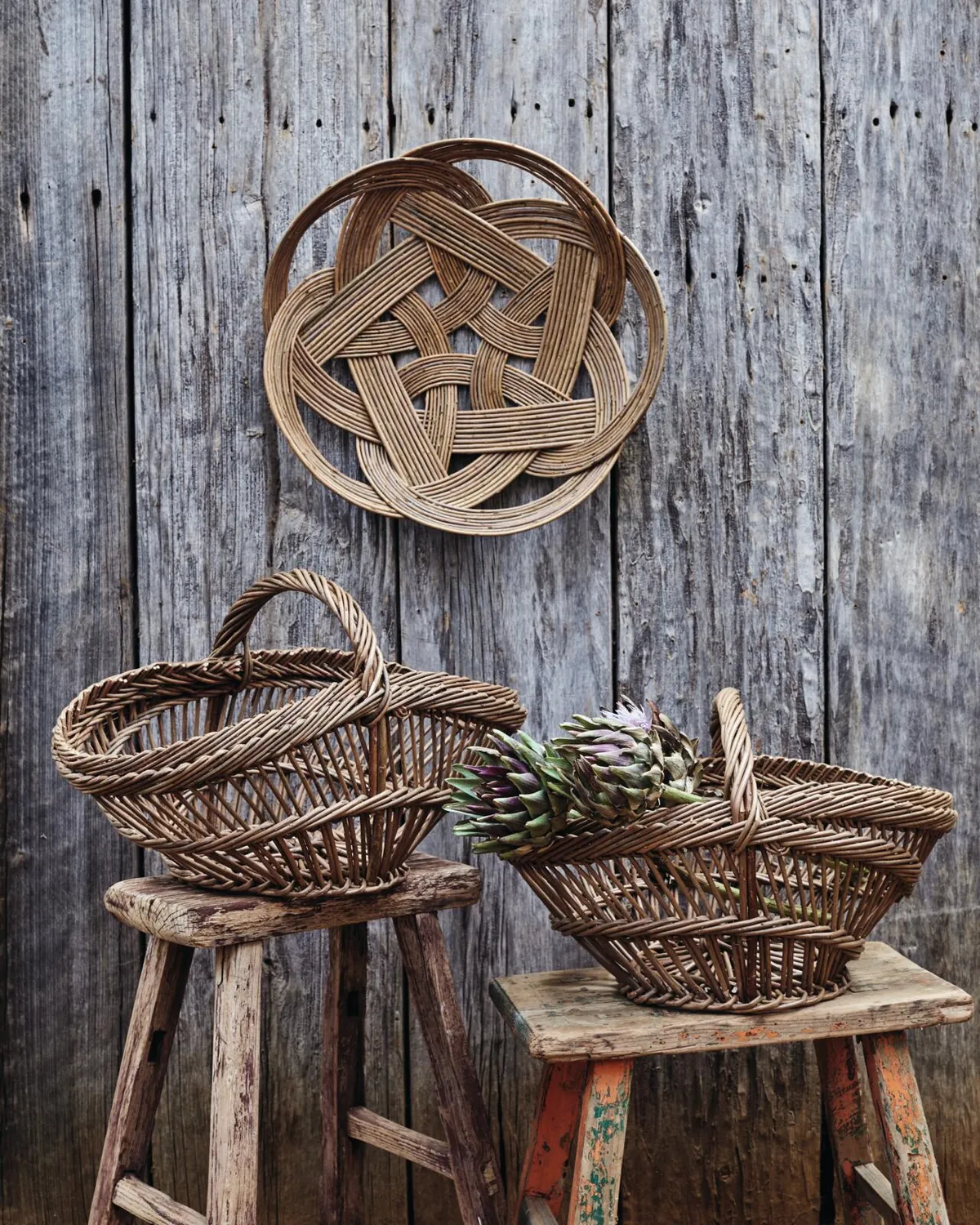
The family-run company comprises a popular restaurant – operated on a farm-to-fork principle – and a homewares emporium. Autumn marks the arrival of ‘A Maker’s Hand’ series, where Petersham highlights homegrown talent such as ceramicists Freya Bramble-Carter, Katrin Moye and basketmaker Lin Lovekin. Collectively these artists share Petersham Nurseries’ ethos of conscious living and beauty in simplicity.
Another basketmaker, Judy Simmonds, based in east Devon, is providing Petersham Nurseries with bread baskets woven from Somerset and French willow. Each made from 120 carefully selected willow rods, the bread baskets have a beautiful curving form made up of precise patterns.
Sharland England

Sharland England, founded by Louise Roe, is committed to working with small communities of artisans around the world. Everything is handmade in small batches, from plates and napkins to furniture.
Rattan sits at the heart of the brand. It is one of the most sustainable raw materials in the world for furniture: it replenishes itself in its natural habitat faster than wood or bamboo and should last a lifetime.
The company works directly with its makers allowing transparency over fair pay and working conditions. Small-batch production minimises waste and, wherever possible, the packaging is eco-friendly and recyclable.
You might also like sustainable wallpaper brands to have on your radar
Fiona Finds
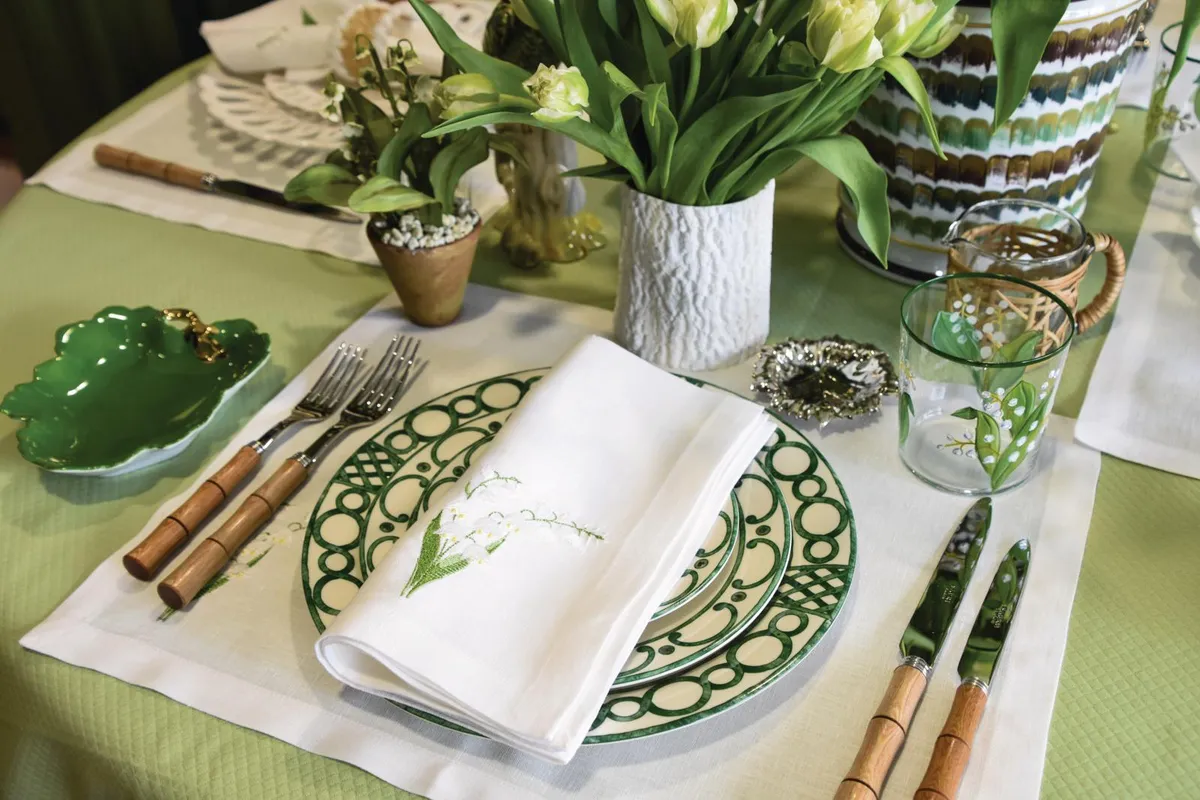
Passionate about reducing the prevalence of disposable and plastic homeware, Fiona Dreesmann’s Belgravia shop is filled with beautifully made items designed to last.
Stock includes a wide range of gorgeous tableware and is particularly strong on glass: from elegant hand-blown clear glass decanters to bright harlequin sets of tumblers from Murano.
Caravane
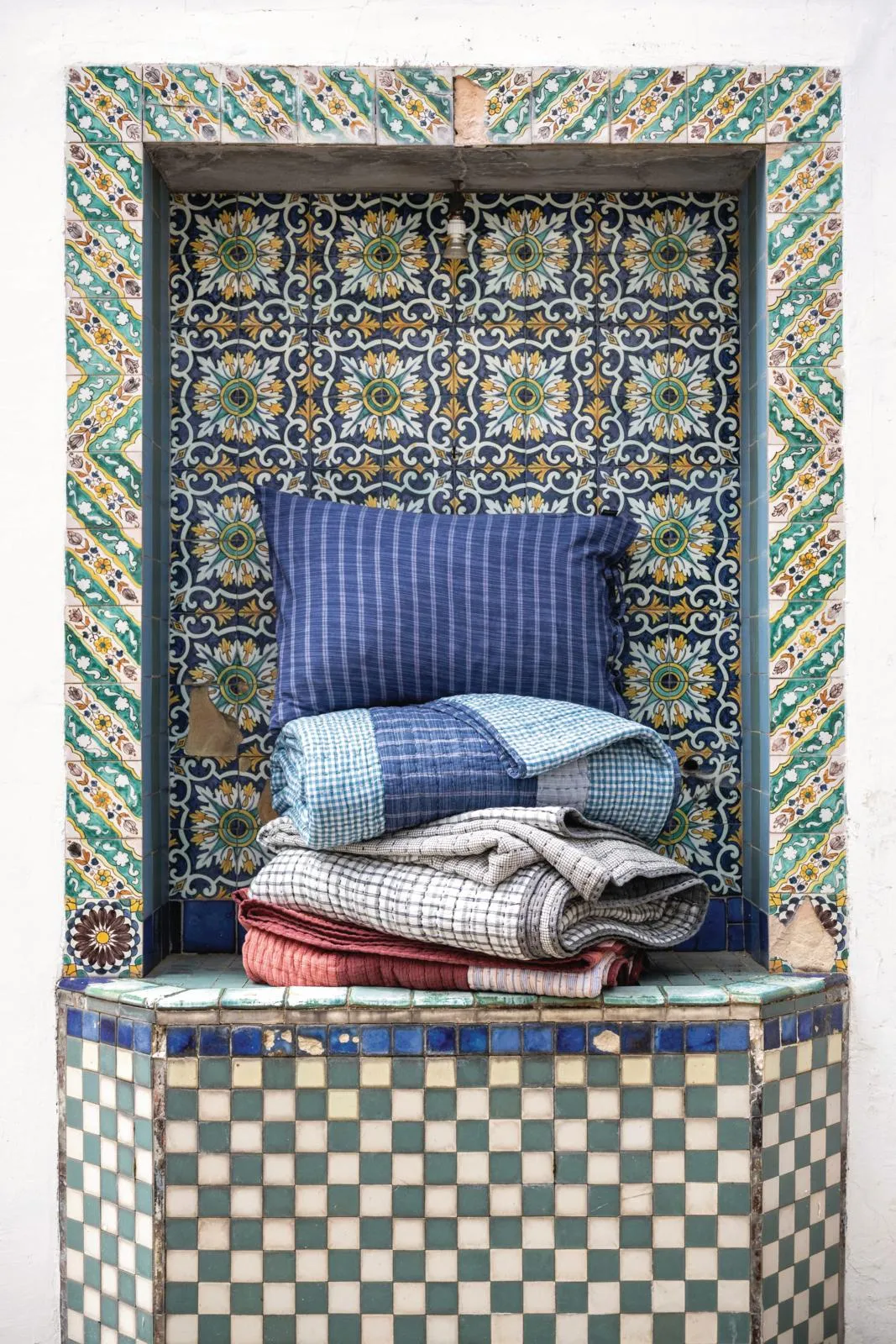
Since opening its first shop in 1995 in the Marais district of Paris, Caravane has gone from strength to strength and now has stores throughout France, as well as two flagship shops in London: Coal Drops Yard and Marylebone.
Caravane specialises in sustainable homewares made from natural and recycled materials. Stock ranges from elegant sofas and soft furnishings to recycled glass carafes and drinking glasses, and reed-fibre baskets.
deVOL

Founded in 1989 by Philip deVries and Paul O’Leary, deVOL has made its name for its stylish, trendsetting heritage-inspired kitchen designs. Its aptly titled Heirloom Collection, for example, takes its cues from the fabulous Victorian kitchens at the National Trust’s Lanhydrock House.
In addition to the beautiful cabinets, made by hand in its Leicestershire workshops, deVOL also designs and makes a wide and wonderful range of accessories. Ceramic lampshades are batch-made and come in a number of glazed finishes; tableware includes large platters; hardware ranges from brass taps and light fittings to pleasing drawer handles and door latches.
Every aspect of the kitchen and utility room has been considered. For the full deVOL experience, visit the showroom at Coates Mill, where there is a constantly changing selection of interesting antiques and vintage accessories.
Jennifer Manners
The company’s innovative and award-winning /re/ Purpose Performance Collection uses recycled water bottles to create luxurious plush hand-knotted rugs.
Discarded non-BPA water bottles are recycled in commercial facilities in India and repurposed into fibres that have the look and feel of real wool, but are water-resistant and incredibly hardwearing – perfect for use in kitchens, halls and other high-traffic areas.
You might also like meet the makers weaving sustainable textiles using traditional methods
Weaver Green
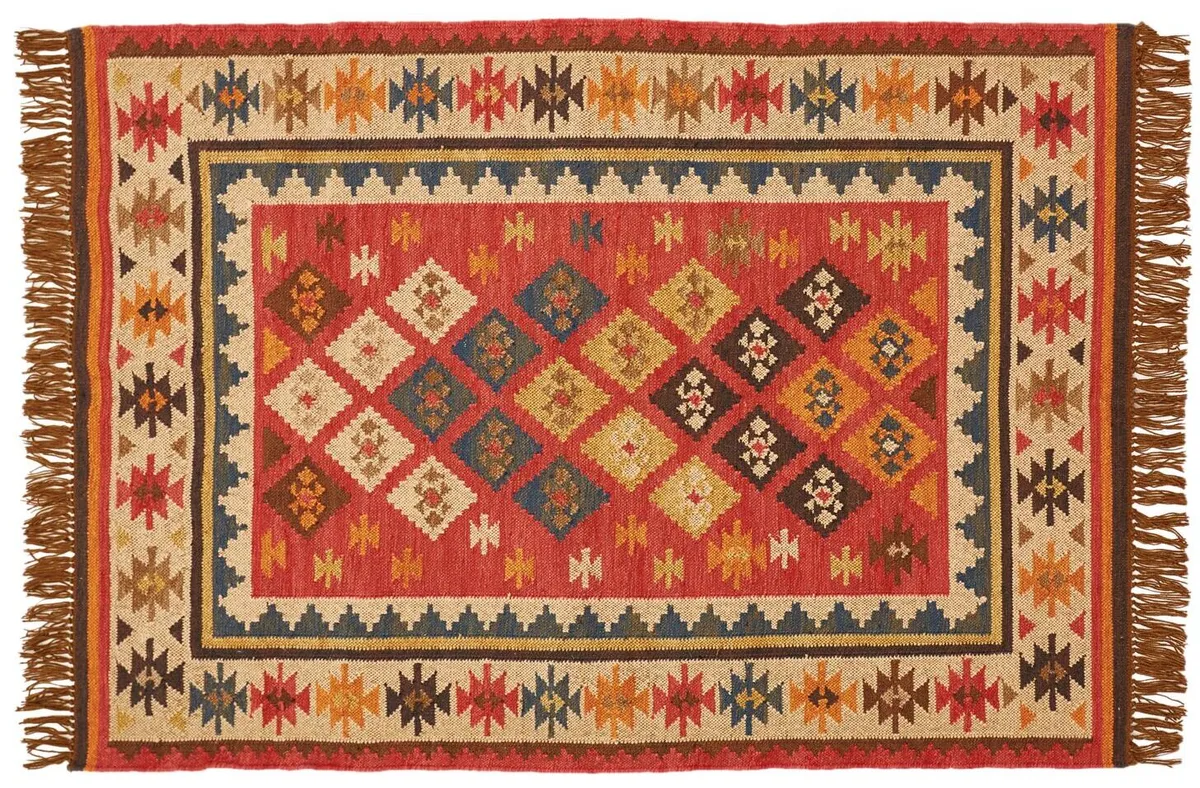
A chance encounter with a rope made from an unravelled plastic bottle was the lightbulb moment that launched Weaver Green: could plastic waste be put to use as yarn, wondered founders, Tasha and Barney Green.
Seven years later, the answer was a resounding yes, and the resulting yarn is soft and pliable. Designs are inspired by the couple’s love of antiques, and take their cues from Scandinavia, North Africa, Southern France and Ibiza. The range has expanded to include cushions, tablecloths, napkins and bags.
Lilla Rugs
A reliable source of traditional handmade rugs, from across the world, Lilla Rugs is committed to supporting artisan weavers to keep the art form alive and free from mass manufacturing.
The company’s Vintage Distressed collection is an innovative approach to Persian rugs from the 1960s that have fallen out of fashion in terms of design and colour.
By deliberately distressing the pile and softening the colours, rugs that might otherwise be thrown away are finding a new lease of life and gaining fans in the west.
Tom Raffield
The eponymous lighting company’s low-energy and eco-friendly method of manipulating wood, coupled with using dry construction processes ensures its carbon footprint remains low.
Any wood that cannot be reused post-production is donated to local companies, including toy makers and a community garden platform where the wood is repurposed to create seed dibbers and small gardening tools.
Tom Raffield has joined WWF 2030 Circle, supporting the Trillion Trees programme, committed to restoring natural habitats and ecosystems.
Curiousa & Curiousa

For designer and founder Esther Patterson, longevity and sustainability matter. The company runs a repair and refurbishment service, and its lights can be recycled through a buy back service in which glass can be reused.
Curiousa & Curiousa has recently launched Vintage Siren, in which beautiful vintage plates, bowls, and dishes are teamed with hand-blown glass to create playful and strikingly layered wall lights.
You might also like sustainable Christmas wrapping paper
Cornish Bed Company
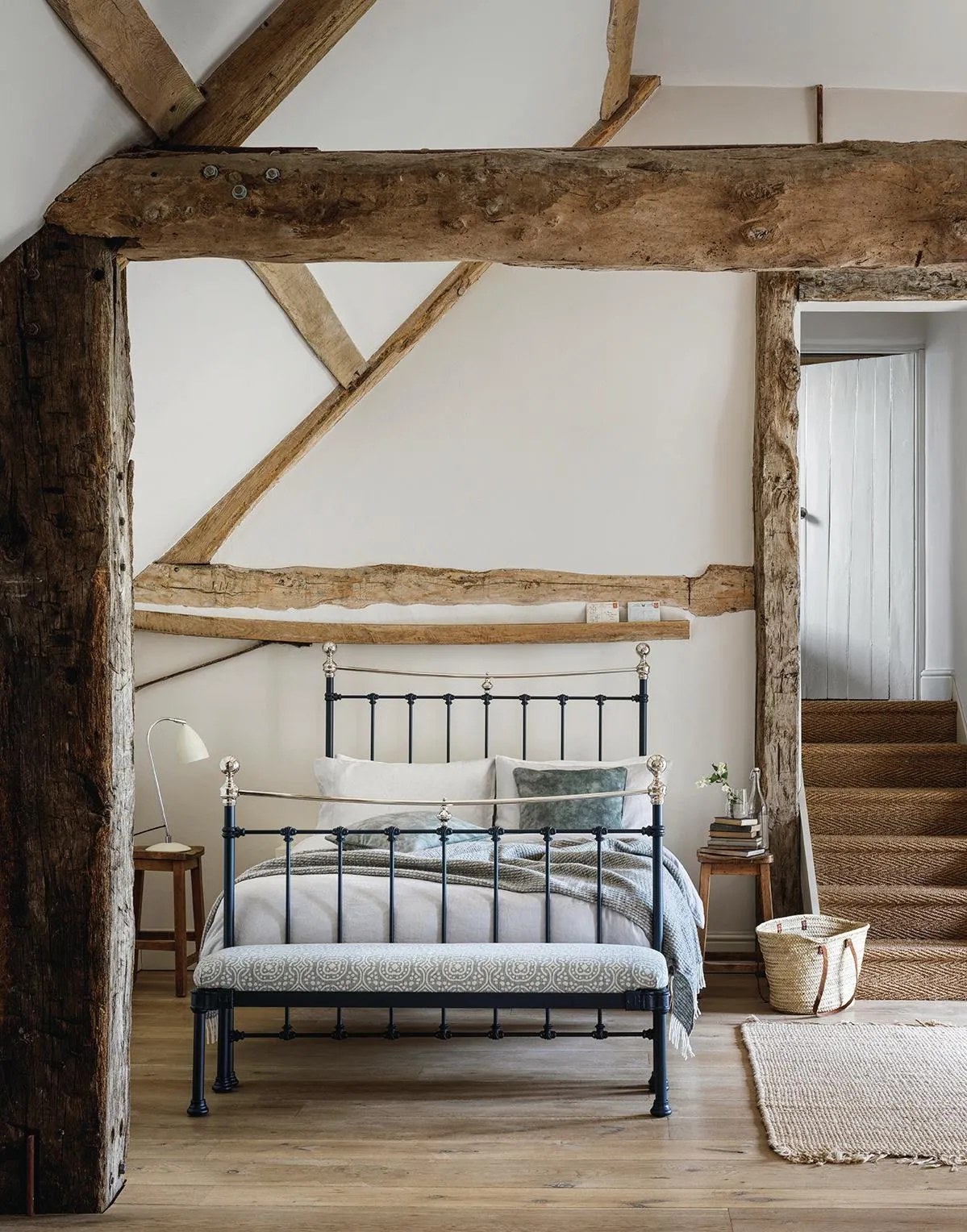
The only hand-cast metal bed foundry in the UK to use traditional Victorian techniques, The Cornish Bed Company’s beds will last for generations, and are certain to become heirlooms of the future.
Attention to detail is everything at the small factory in Par: every part of the process is done by hand, and the beds are individually numbered, meaning each bed is unique. All beds are made to order and frames can be customised in any number of ways, from colour and size to decorative detailing.
Cotswold Company
Having opened its first shop at Bourton-on-the Water 26 years ago, Cotswold Company is known for its traditional, country-style furniture and has long been committed to responsible production processes.
Sofas are handmade to order and 45 per cent of the wood it uses comes from FSC-certified sources; the company is aiming to make this 100 per cent by the end of 2022. Its commitment to sustainability reaches beyond the product itself with a full sustainability pledge that includes sending zero waste to landfill by the end of this year.
Heal’s
At the cutting edge of furniture production since 1810, and known for timeless designs built to last, it’s no surprise that Heal’s is committed to sustainability. In the UK it has strong relationships with potteries in Stoke-on-Trent, sofa manufacturers in Nottingham, and one of the UK’s last remaining vertical weaving mills in Oldham.
Further afield, Heal’s supports ethical design brands, such as Mater, that are driving responsible sourcing: its sleek, Scandi-inspired Bowl Table supports the traditional skills of the Kharadi community in India and is made from sustainably sourced, fast-growing mango wood.
Ercol

Ercol carefully selects and trains its manufacturing partners and has put in place rigorous quality checks to maintain and protect its brand standards.
Founded by Lucian R Ercolani in 1920, the design studio is based in an award-winning purpose-built factory, heated by a biomass boiler, in Princes Risborough, Buckinghamshire.
The company’s innovative reCover scheme encourages customers to have favourite pieces from its classic ranges reupholstered in order to extend the life of the product.